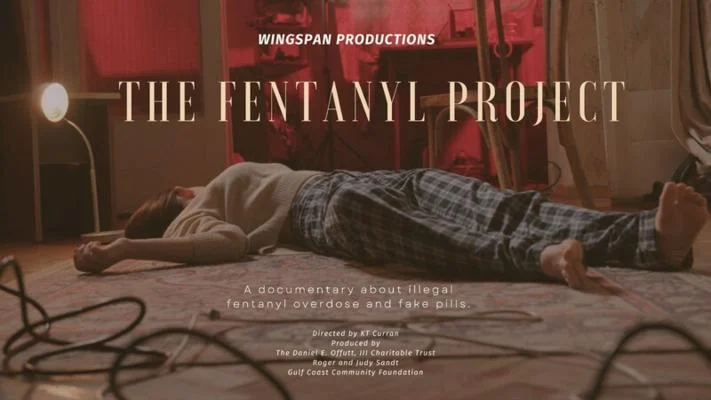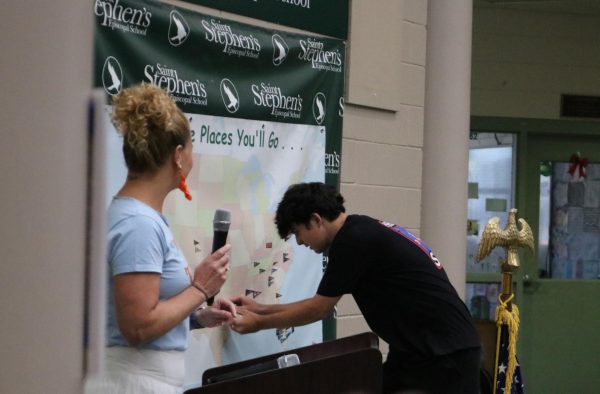Anthropocene Review: “Ode to a Pickle”
Inspired by John Green’s most recent book, “The Anthropocene Reviewed,” this is the second installment in a series of reviews examining the wonderful, interesting, and oftentimes annoying aspects of life on the planet Earth from the perspective of a high school student.
February 26, 2022
In May of last year, in the midst of the global pandemic, young adult novelist John Green published his first nonfiction book, reviewing the Anthropocene. The Anthropocene, as Green puts it, is “the current geological age, in which humans have profoundly reshaped the planet and its biodiversity.” In other words, it’s the age we’re living in. In a series of essays, Green reviews everything from Scratch ‘n’ Sniff Stickers to The Notes app on a five star scale. In a series of articles, I will do the same.
Ode to the Pickle
The process of fermentation has been around for thousands of years (fermentation is essentially the breakdown of sugars by bacteria or yeast and the production of alcohol). Even before humans were consciously attempting fermentation, spontaneous natural fermentation was occurring in milk in Africa as far back as 10,000 BCE. And as humanity progressed, so did their skill at and love of fermentation.
And today, I truly appreciate the genius of our ancestors as I bite into a crisp, salty-sweet fermented cucumber (AKA a pickle). Much to my mother’s irritation, fermented foods have always been something I’ve loved. In some ways her hatred of the salty smell of pickle brine or the pungent odor of kimchi made me love them more.
We can thank the Mesopotamian’s as the creator of the first pickles around 2,400 B.C.. Ancient Greek and Roman generals, notably Caesar, fed them to their troops “in the belief that they lent physical and spiritual strength.” While I wouldn’t necessarily say that the Romans’ reasoning was entirely sound, I kind of agree with them. I feel like my spirit gets stronger the second I savor a sweet and salty pickle— but maybe that’s just me.
To bring us a little bit closer to home, the history of pickles in America started in the late 1800s and early 1900s when European jews brought these briny snacks with them when they immigrated to the U.S. From the delis of New York City, the pickles have thankfully made their way into most people’s pantries in not just their original jarred form, but also in the shape of potato chips, nuts, and (oh yes) ice cream.
But for me, the story of pickles started a little closer to home. At the grand and storied establishment of the Manatee Avenue Sweet Berries, a restaurant I always felt a deep connection to due to the similarities between the restaurant’s name and my last name, I had my first pickle. My mother loves to joke that she laments the day my uncle gave me the pickle that accompanied his Kansas City roast beef sandwich, because after that I never stopped demanding them. And ever since that historic day I’ve cherished the savory bite of a good old fashioned dill.
Pickles are not only an integral part of my own life, but a necessary part of, in my opinion, most foods. What would a sandwich be without its pickle? Any cheeseburger, fresh off the grill needs its meaty cheesy goodness cut by the sharp, sour flavor that only a pickle can bring.
And who can deny the importance of pickles in our current culture? The phrase “in a pickle” arrived into English from a sixteenth century Dutch phrase “in de pekel zitten,” or literally, “sitting in the pickle.” Even Shakespeare referenced pickles in his play The Tempest, although in that case being pickled meant drunk.
But do not fear, this is not an ad for any pickling company (although if any want to sponsor me, they can contact my editor), merely me expressing my adoration for a food I feel gets too much hate, and not nearly enough credit. Because alas, many seem to hate my salty friend! They fear its flavor and cannot handle its brine. For them, the wonders of the gherkin and the bread and butter will remain hidden, but for us who appreciate the divine nature of the pickle, we will be given the physical and spiritual strength that even the mighty Caesar saw in this humble and preserved fruit.
For this reason, despite what I’m sure are many protests, I bestow upon the mighty pickle five stars.
And t” border_color=”#888888″ border_size=”5px” shadow=”on”]

























































